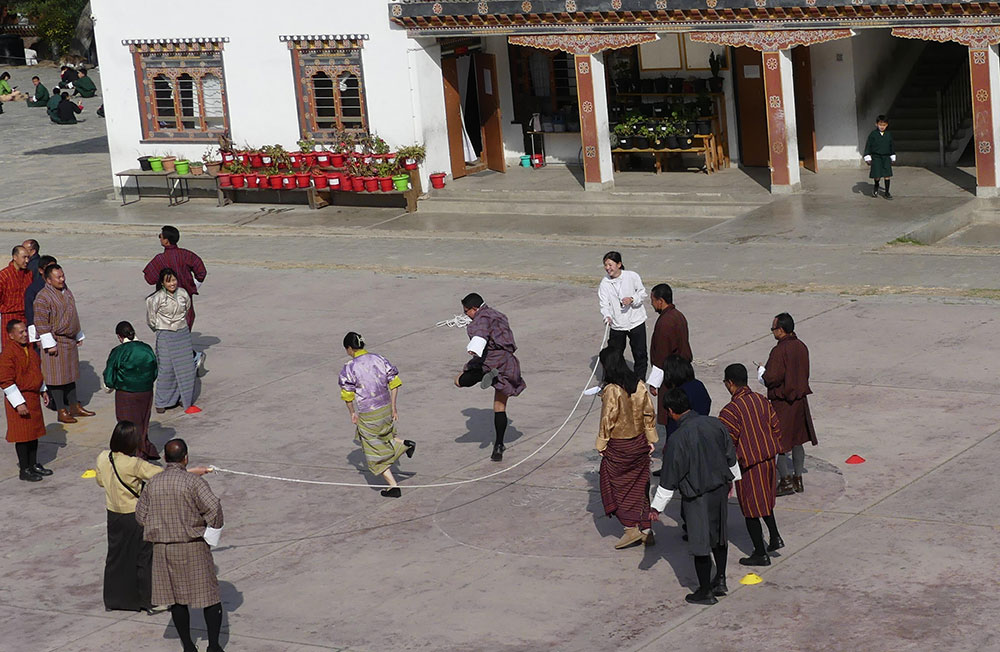
Yesterday, 66 individuals from Thimphu, including principals, Health and Physical Education (HPE) teachers, and School Sports Instructors (SSI), went to a workshop. The workshop was all about keeping students healthy and fit in schools.
The workshop was meant to explain why Health and Physical Education (HPE) is important for schools.
It showed how HPE can help schools take care of students’ health and success in their studies.
The workshop, conducted by JICA with the Ministry of Education and Skill Development, has two goals. First, it wants to make people understand why Health and Physical Education (HPE) is important. Second, it wants to create a friendly atmosphere in schools where students can be healthy, fit, and do well in their studies.
During the workshop, teachers from 34 schools in Thimphu learned both theory and practical lessons to improve their physical education skills. Three teachers from Japan, who are currently teaching in Bhutanese schools, guided them through the training sessions.
Kuenzang Dorji Tangbi, a Senior Program Officer at JICA Bhutan office, said that even though Health and Physical Education (HPE) is included in the curriculum, schools haven’t focused much on it in the past.
He said how important students’ health is for their success in school. He said it’s essential to always make Health and Physical Education (HPE) a top priority because it brings many advantages to students’ lives in different ways.
He noted that among the pressures of regular schoolwork, Health and Physical Education (HPE) classes are crucial. They give students a break from the stress of their studies, helping them relax mentally and physically.
He added that the workshop aimed to show teachers how important Health and Physical Education (HPE) is for students’ overall growth. It wanted to inspire them to include and give importance to physical education in their teaching, seeing it as a vital part of student development.
Kuenzang Dorji pointed out that including principals in the workshop is important because they have a big role in determining how successful Health and Physical Education (HPE) programs are in schools.
Kuenzang Dorji highlighted that principals, being the authority figures in schools, have the power to decide if they want to support and make Health and Physical Education (HPE) classes a priority. He mentioned that without the support of principals, teachers might find it difficult to run HPE classes effectively.
Sayaka Hashimara, a JICA volunteer coordinator, mentioned that Japan has been helping to improve Health and Physical Education (HPE) classes in Bhutan since 1996, making a big contribution.
She mentioned that Bhutan has made strides in implementing and giving importance to Health and Physical Education (HPE) classes over the years.
Sayaka said that this training serves as both a learning platform and a chance for participants to discuss their experiences and obstacles in the field of Health and Physical Education (HPE).
During the training, discussions covered topics such as following strict rules during class time and assessing how well Health and Physical Education (HPE) classes are working.
The organisers expressed their plan to broaden the workshop’s scope to include schools in other dzongkhags in the future, building upon this workshop’s success as a pilot project.












